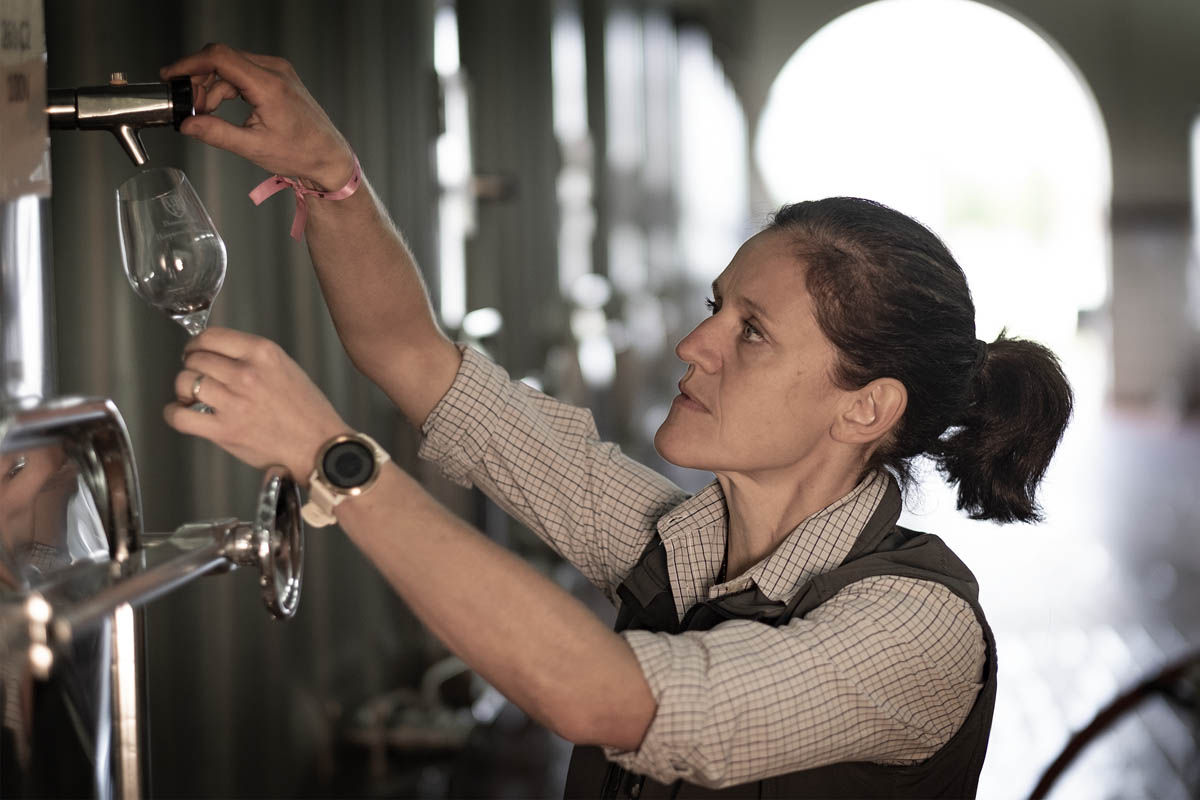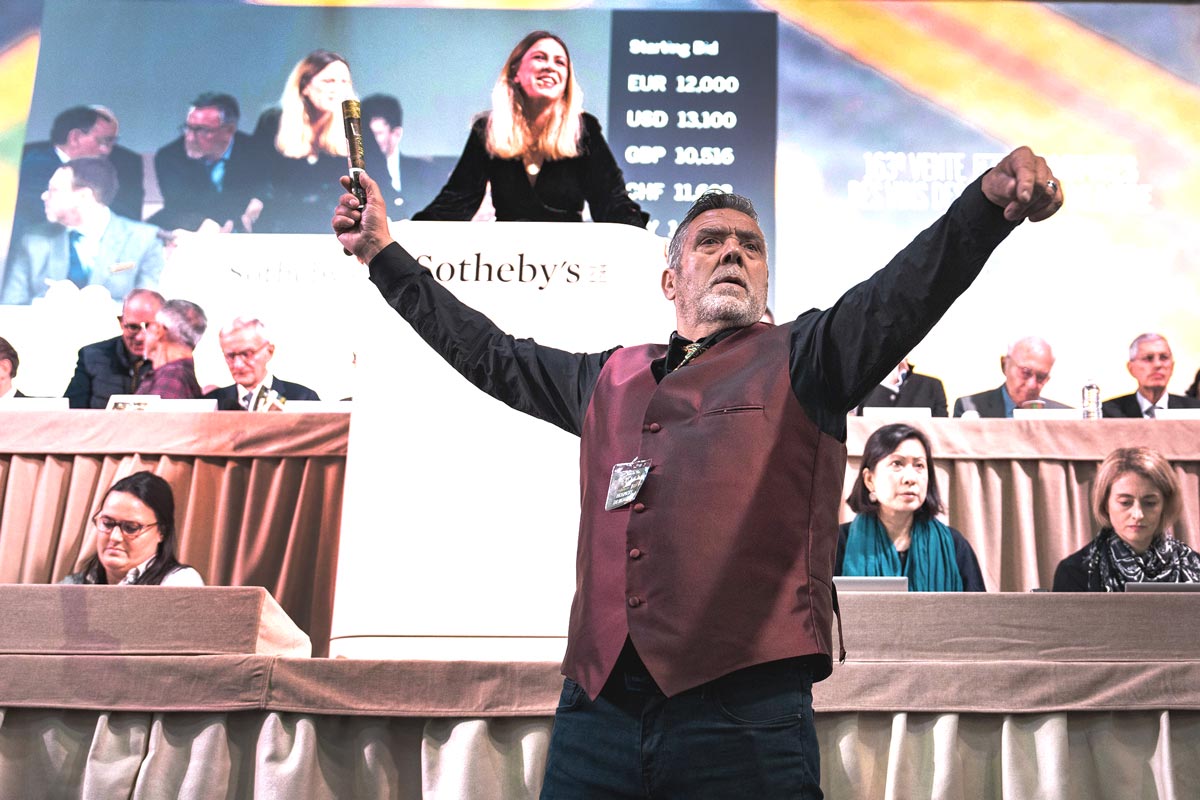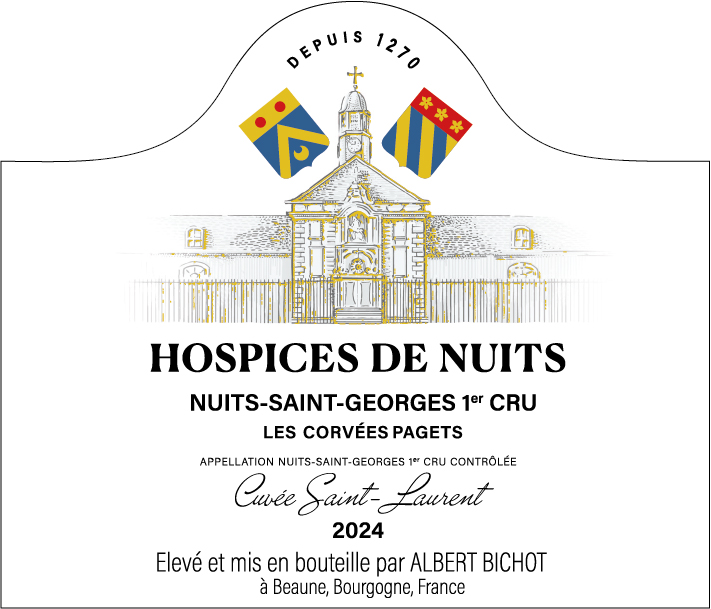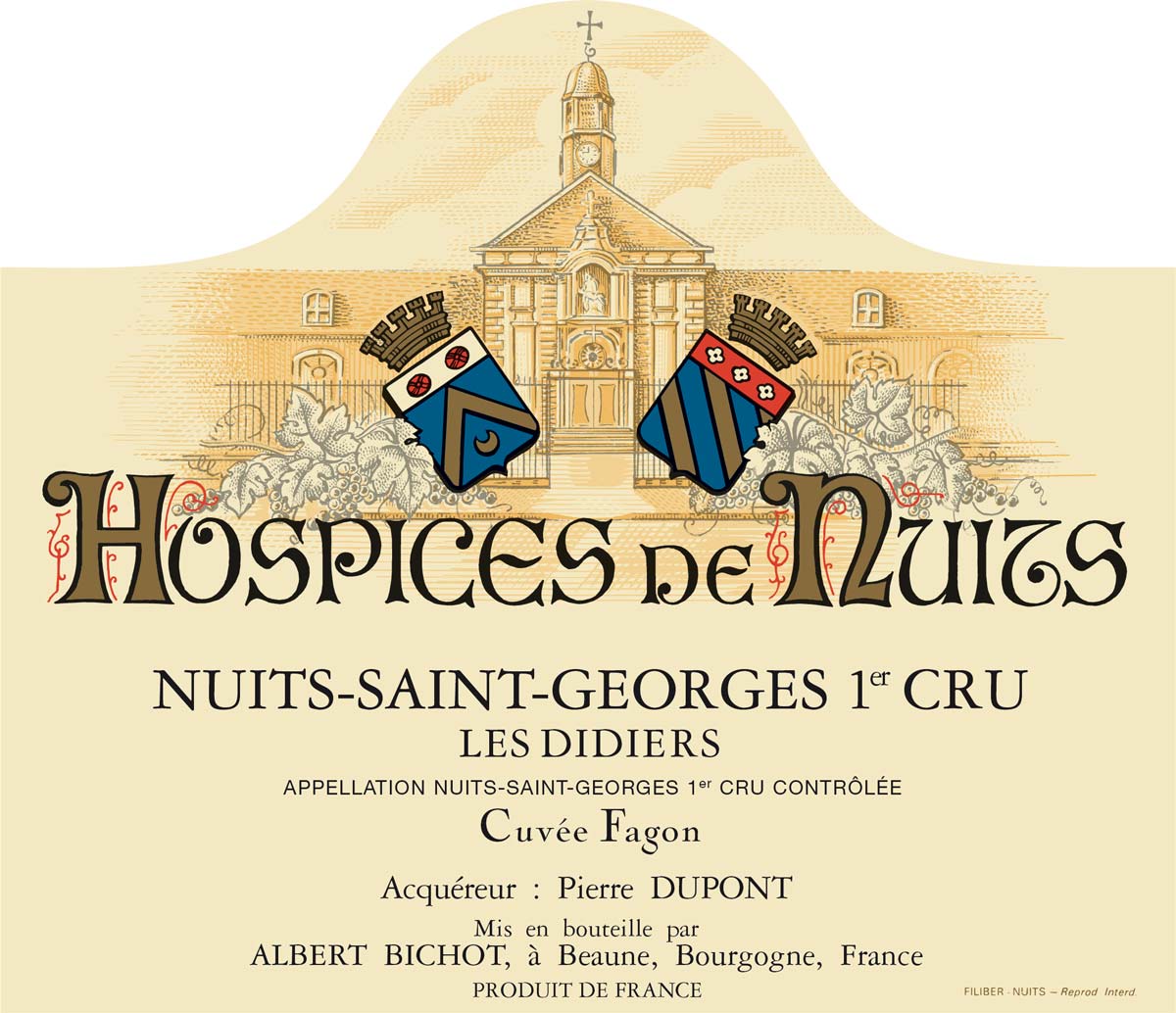Domaine des Hospices de Beaune:
a true emblem of Bourgogne wines
A 60-hectare estate of excellence spread over numerous Burgundy appellations and Climats.
Today, the Hospices de Beaune estate covers 60 hectares, or just over 120 parcels, including 50 hectares of Pinot Noir and 10 hectares of Chardonnay. As a sign of the quality of its terroirs, 85% of the estate's vineyards are classified as Premier or Grand Cru. It is an exceptional winegrowing heritage, proud representative of the Climats de Bourgogne, classified as an intangible heritage of humanity in 2015 by UNESCO.
Logically, due to its historic location in the heart of the capital of Burgundy wines, a majority of the parcels are located in Côte de Beaune. The Beaune appellation itself is dominant, with around 20 ha. Domaine des Hospices's holdings then extend into the surrounding villages, on the hillside of Corton, Pommard, Volnay or Meursault in particular.
However, Domaine des Hospices de Beaune is also present on the other Côtes. To the very north, a small parcel of Chablis 1er Cru highlights this terroir with its singular minerality. Then there's a sublime collection of Grands Crus in Côte de Nuits (Mazis-Chambertin, Echezeaux and Clos de La Roche), the source of three exceptional cuvées, as well as a very attractive parcel in Montrachet Grand Cru, which frequently sets auction records. Finally, in the far south of Bourgogne, the Domaine owns vines in Pouilly-Fuissé 1er Cru.
The Domaine des Hospices de Beaune is thus a reflection of Bourgogne: both multiple and unique in the diversity of its terroirs. Its wines offer buyers an incredible diversity of aromatic expressions, flavors and occasions for sharing. All Domaine des Hospices de Beaune wines are sold at an exceptional auction, renowned the world over, every third Sunday in November since 1859.
An environmentally-friendly estate, certified organic since 2024
For a very long time, the Domaine des Hospices has been cultivated with a policy of respect for the environment. Logical when you belong to a hospital, where care and attention to others are among the cardinal values. It has thus been run for many years with a policy of zero chemical inputs. It was, however, with the arrival of Ludivine Griveau in 2015 that things accelerated. With her team, she successfully led the estate towards a complete conversion to organic farming. The Hospices de Beaune estate has been officially certified since the 2024 harvest.
As a forerunner and strongly committed to this theme (our Domaines are all certified organic), at Albert Bichot we age all Hospices de Beaune wines while preserving their organic certification. A clear sign of the care our company takes with these great wines for a great cause.
Organic viticulure: a shared care ethic with the hospital
As Ludivine Griveau says: "The organic conversion process is a real philosophy that was already deeply rooted in our practices. We opted for a global conversion of the estate, on all 60 hectares, with the commitment of our 23 salaried winegrowers and our team in the winery. It's a shared ethic of care, with the devotion of hospital staff in mind and this need to carry shared convictions."
At the head of the Domaine, Ludivine Griveau since the 2015 vintage

Attached to the Hospices Civils de Beaune, the administrative entity that also manages the hospital, the Hôtel-Dieu museum, retirement homes and even a nursing school, the Domaine des Hospices is managed on a day-to-day basis by a régisseur. Since 2015, this role has been ably filled by Ludivine Griveau. She pilots both the viticultural activity and the vinifications, before the wines are sold at auction.
52 wines auctioned on the 3rd Sunday of November, a few weeks after harvest
After the harvest and vinification, all the wines made by Ludivine Griveau are auctioned on the 3rd Sunday in November under the Halles de Beaune, opposite the Hôtel-Dieu. The sums raised (around 25 M€ in recent years) help to finance numerous hospital projects, thanks to the generosity of buyers from all over the world, who then entrust their purchases to négociants-éleveurs - like Albert Bichot of course - who will have the delicate task of ageing them for 12 to 18 months before bottling.
























